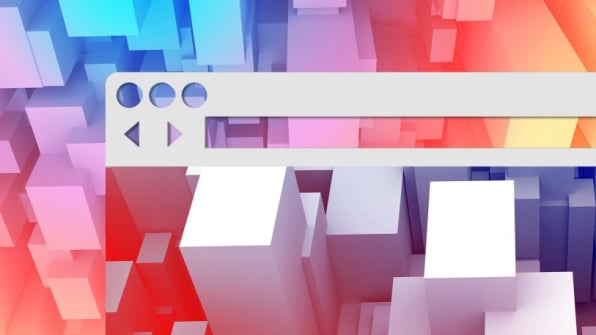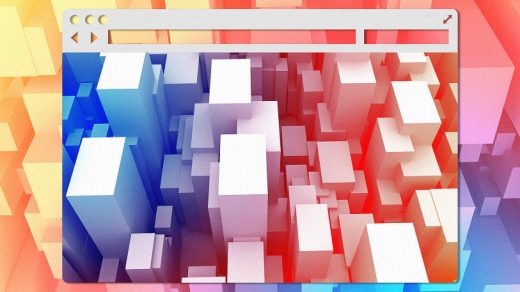Empowering News Readers To Take Action, And Other World-Changing Apps
In recent months, reports of people and communities under threat–Muslim immigrants being barred entry to the U.S.; hate crimes against religious and ethnic groups in this country–have flooded the news. It’s difficult to scan to the bottom of an article and respond with a sentiment other than: “I just want to do something.”
When the browser extension Information for Action (IFA) becomes available this summer, it will directly connect people looking to get involved with ways to do so. After installing the extension, which earned the top spot among apps in Fast Company’s World Changing Ideas Awards. (You can read more about the other finalists below), online news readers will see a bubble pop up with opportunities for action at a local and national level. These can range from community meetings, to volunteer opportunities, to organizations in need of donations. “We’re trying to rebrand activism,” co-founder Emily Thomas tells Fast Company. While “slacktivism”–the idea that people can effect change through a quick text or a share on social media–has come under fire lately for not being all that effective at fostering real community, Thomas and her co-founder John Toner think that IFA will tangibly translate online activity into real, community-driven change.
“Part of our tagline is ‘we believe change should meet you where you are, when it matters,’” Thomas says. “The thing we’re excited about is connecting opportunities to people, so they don’t have to open another browser tab and search for ways to get involved: Instead, it’s just right there.”

Thomas and Toner are engaged, and over the course of their relationship, they got interested in combining their respective backgrounds in journalism and international development to create a tool that would meet the need for action they both observed. Coming from the world of online journalism, “I was seeing through comments and social media how many people after a natural disaster or breaking news were asking for ways to help,” Thomas says. And after his experience working as a consultant for the United Nations and figuring out how to best use technology to deliver aid, “I really discovered the promise of data and technology to solve critical problems,” Toner says. After gathering community feedback from local organizing meetings they attended in Brooklyn, Thomas and Toner landed on IFA as a way to direct the outpouring of concern that Thomas observed toward the causes that need it most.
Since relocating to the Bay Area last year, Thomas and Toner have been hard at work developing the platform with a team of advisers with experience working for places like Adobe, JPMorgan Chase, and the New York City Department of Education. Since February, they’ve been operating IFA as a pilot in Brooklyn, the Bay Area, and Kentucky (where Toner is from); some of the organizations they’ve onboarded to post actions and test the platform include the Kentucky YMCA Youth Organization, the Queen’s College Center for Ethnic, Racial, and Religious Understanding, Impact Justice, Woman Inc., and Families United for Racial and Economic Equality. IFA will be free for both organizations and individuals to sign up for; Toner and Thomas have gone the traditional bootstrap-startup way of securing initial funding from friends and family, and they’re in the process of seeking out investors. They were also named finalists in the Big Ideas @Berkeley competition earlier this year; with funding from that program, Toner and Thomas are now working on onboarding hundreds of organizations representative of every region in the U.S.
According to research from Google, around 49% of the U.S. population could accurately be classified as “interested bystanders”: they’re paying attention to what’s going on around them, but not actively getting involved. “We think there’s a real need to reinvigorate activism and get people involved,” Toner says. But IFA, he adds, will get people outside the online echo chamber and into the communities and organizations that need the aid. “One of the remedies to the polarization we’re seeing now is actually solving problems together, in person,” he says. “We want to really inspire stronger relationships and stronger communities.”
Here’s more about the finalists in the food category:
Look Up
Ekene Ijeoma
Walk down the street in pretty much any city, and you’re more likely to see people with their eyes glued to their phone than taking in the sights around them. Designer Ekene Ijeoma created Look Up as a way to remind people to appreciate the city they live in–and the people that live there with them. Responding to the energy level at a particular intersection, the app buzzes to remind users to look up from their phones. In that way, it also functions as a safety measure–not only is wandering streets as a smartphone zombie isolating, it’s also more likely to lead you unawares into oncoming traffic.
Stuffstr
Stuffstr
Think about your closet: How much stuff do you have in there? How much of it do you really need and use? Over 80% of household items are used less than once a month, and the average American throws away 70 pounds of clothing per year. Stuffstr, an app and public benefit corporation dedicated to reducing waste and excess, wants to help people be more conscientious about what they own and purchase. On the app, you can track each item you own and purchase, and connect to online marketplaces that facilitate repairs, resales, and donations. The idea is to enter every purchase into a circular economy, extending its lifecycle and curbing our culture’s wasteful tendencies.
Give a Beep
Edelman Deportivo
Speeding through London’s streets, cyclists ring their bike bells to signal fear or frustration, or to tell pedestrians to get out of the way, stat. Give a Beep adds another layer to the bike bell by connecting it to a smartphone app that sends an email to the London mayor’s office, signaling the points in the city where cyclists feel most at risk. Over the course of 2015, the 500 cyclists who downloaded Give a Beep and received the connected bike bell sent 5,000 emails to the mayor’s office, calling for concrete improvements to cycling infrastructure.
Earth’s Changing Climate simulation
Amplify
In a series of gamified simulations, students can manipulate factors like population, livestock, sunlight, and methane to see how their choices and lifestyles directly impact climate change. The science education experts at UC Berkeley’s Lawrence Hall of Science developed the Earth’s Changing Climate simulations for Amplify Science–a program that motivates students to solve real-world problems using science. Watching different climate scenarios unfold, students collect data and make predictions and learn to respond to situations like scientists.
Open Library
Worldreader
Across the world, 250 million young children lack basic reading and writing skills, and, in Africa, 40% of schools have few or no textbooks at all. Mobile phones, in contrast, are ubiquitous. The Worldreader Open Library has adapted 18,000 titles in 43 languages to a mobile-phone-friendly format to increase access to books for children and families in the developing world. The available titles traverse all genres, from educational books for early learners, to thrillers and romance novels for adults. By packing books into mobile phones, the app aims to boost literacy rates and make reading as common as placing a call.
Turo
Turo
Turo is a rental car platform for the sharing economy: When users arrive somewhere new, they can rent a vehicle from local car owners at the fraction of a cost of mainstream rental companies. It’s a win-win for renters and owners: Owners can earn a bit of extra cash on a car they may not use all the time, and renters can get a cheap ride, and maybe get some local recommendations in the process.
Ballot
Ballot
Imagine the democratic process distilled down into app form. That’s Ballot: a platform that integrates important information on upcoming elections with candidate profiles, a Tinder-style candidate-matching quiz based on policy preferences, and voter registration. Despite the high drama of the 2016 presidential race, voter turnout remains low in the midterms and local elections: In many cities, less than 20% of people show up to vote in local elections. Ballot imagines a more engaged citizenry and a more accessible government; creating a platform that supports transparency and access, the founders believe, is the first step.
NBA Math Hoops
Learn Fresh Education Co.
Math is one of the clearest indicators of the achievement gap faced by low-income students of color; without good-quality education, students struggle to master fundamentals and move onto more challenging classes. But when it’s combined with basketball, math becomes much more accessible. NBA Math Hoops is the app version of a popular board game; on the app, students compete to score points by solving math problems based on real NBA and WNBA players’ stats. Math is a lot less of a slog when you’re trying to figure out how to make your app version of Russell Westbrook average a triple-double (and if you’re not a basketball fan, Learn Fresh Education Co. CEO Khalil Fuller is in talks with the NFL about a similar game).
ShareTheMeal
World Food Programme
Every time you sit down to eat, the ShareTheMeal app reminds you that one in seven children in the world doesn’t have enough to eat that day–and that feeding them takes just 50 cents. When smartphone users (who outnumber hungry kids 20 to one) open the app, they can send a meal to a child in need; ShareTheMeal shows where the meal was directed, and checks back in with updates on how the kids are progressing. So far, more than 12 million meals have been shared through the app; its founding organization, the World Food Programme, hopes it will contribute to a zero-hunger future.
Intellivisit
Intellivisit
What if you could get a medical diagnosis without even having to leave your house? Intellivist makes health care more immediate and accessible through an artificial-intelligence-assisted app that diagnoses patients and connects them to care delivered by local doctors and nurses. By streamlining the diagnostic process, the app could cut costs associated with in-person visits, and limit the use of emergency rooms as (very expensive) initial treatment options. The founders estimate that 550 million primary care visits in the U.S. could be replaced by virtual visits at half the cost of an office appointment.
Owlet Smart Sock
Owlet Baby Care and R/GA
A balm for new-parent paranoia, the Owlet Smart Sock ensures that a baby’s vital signs are constantly accessible by tracking heart rate and oxygen saturation percentage through a sock that contains a monitoring device. The wearable delivers data to an app, which alerts parents if their newborn stops breathing in the middle of the night, or when they’re otherwise separated from their infant. Owlet is the next phase of baby monitor, adapting hospital technology to give parents data-driven peace-of-mind.
Voting Information Project
Thirteen23
Voter turnout has been trending downwards, and the team at Thirteen23 realized that the accessibility of the voting process might have something to do with it. To break down barriers to participation, the Voter Information Project developed an SMS-based system that allows any cell phone (including non-smartphones) to receive polling place and voter-registration information through texting a simple code. By translating the app into 10 languages, the app hopes to increase diversity in the U.S.’s voter demographic and support equal participation in the democratic process.
(22)



